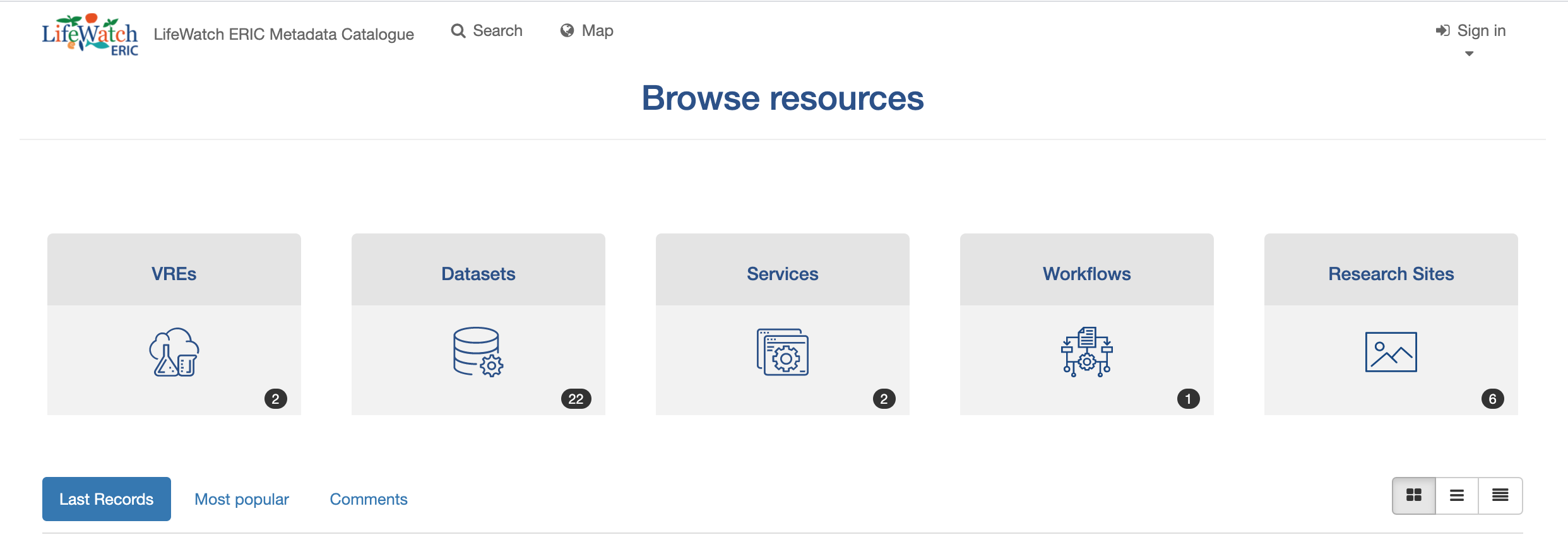The release of the new LifeWatch ERIC Metadata Catalogue was announced on Friday, 20 November 2020, heralding an enormous step forward in the infrastructure’s capacity to offer researchers the innovative tools and services required to tackle the scientific challenges of today and into the future.
LifeWatch ERIC resources and services, Virtual Research Environments, originally released by different member states, have now been united into a single catalogue equipped with descriptive metadata that allow users to retrieve and manage information in much greater quantities and at greater speed. It now consists of one unified VRE, workflows, datasets, services, and a research site.
The LifeWatch ERIC Metadata Catalogue is informed by extensive ontologies and thesauri that make the records findable, accessible, interoperable and reusable, according to the FAIR principles of data management. The architecture is based on GeoNetwork 3.10 and allows users to manage metadata related to five kinds of resources:
- Datasets, by using the EML 2.2.0 standard (60 metadata attributes)
- Research Site, by using a customised ISO19139 standard (36 metadata attributes)
- Services, by using a customized ISO19139 standard (40 metadata attributes)
- Virtual Research Environments, by using a customized ISO19139 standard (25 metadata attributes), and
- Workflows, by using a customized ISO19139 standard (25 metadata attributes).
Not only can metadata attributes be optional/mandatory and require single/multiple values, the LifeWatch ERIC metadata catalogue also enables, upon validation and verification, the creation of Digital Object Identifiers (DOIs) for resources that do not already have one, by exploiting the GeoNetwork – DataCite connection.
This combination of features will allow scientists and researchers, wherever they are in the world, to access data from multiple records and elaborate future models of biodiversity and ecosystem services and functioning under complex vectors of climate change, in a way that has never been possible before.
As nations around the globe realise the need to change humanity’s relationship with Nature, it is timely that the LifeWatch ERIC Metadata Catalogue provides the computing power and access to historical records to facilitate the examination of scenarios of change across vast spatial and temporal scales. Access the catalogue here.


